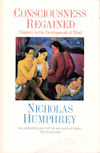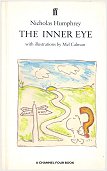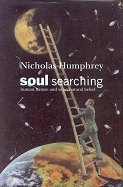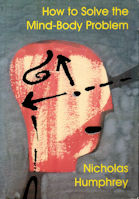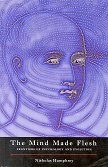Nicholas Humphrey’s writings about the evolution of the mind
have done much to set the agenda for contemporary psychology.
Here, it a series of riveting essays, he invites us to ‘take another look’ at
a variety of the central and not-so-central issues:
the evolution of consciousness, the nature of the self, multiple personality disorder,
the placebo effect, cave art, religious miracles, medieval animal trials,
the seductions of dictatorship, and much more.
Contents
- • On taking another look. 1995
- • One Self: a meditation on the unity of consciousness. 2000
- • What is your substance, whereof are you made?. 1982
- • Nicholas Humphrey, Daniel C. Dennett. Speaking for Our Selves: an assessment of multiple personality disorder. 1989
- Examining multiple personality disorder in terms of Dennett's ideas
of consciousness. It doesn't sound implausible, but there seems to be
far too little data on the phenomenon for much rigorous theorising --
and, as the authors point out, the phenomenon is not really amenable to
ethical experimenting.
- • Love knots. 1987
- • Varieties of Altruism---and the common ground between them. 1997
- • The Uses of consciousness. 1987
- • Farewell, thou art too dear for my possessing. 1982
- • How to solve the mind-body problem. 2000
- • The Privatization of sensation. 1999
- • Mind in Nature. 1986
- • Cave art, autism, and the evolution of the human mind. 1998
- • Scientific Shakespeare. 1987
- • The Deformed transformed. 1979
- • Tall stories from little acorns grow. 1987
- • Behold the Man: human nature and supernatural belief. 1995
- • Hello, Aquarius!. 1986
- • Bugs and beasts before the law. 1986
- • Great Expectations: the evolutionary psychology of faith healing and the placebo effect. 2000
- • What shall we tell the children?. 1997
- • The Number of the Beast. 1989
- • Arms and the Man. 1987
- • Death in Tripoli. 1987
- • Follow my leader. 2001
